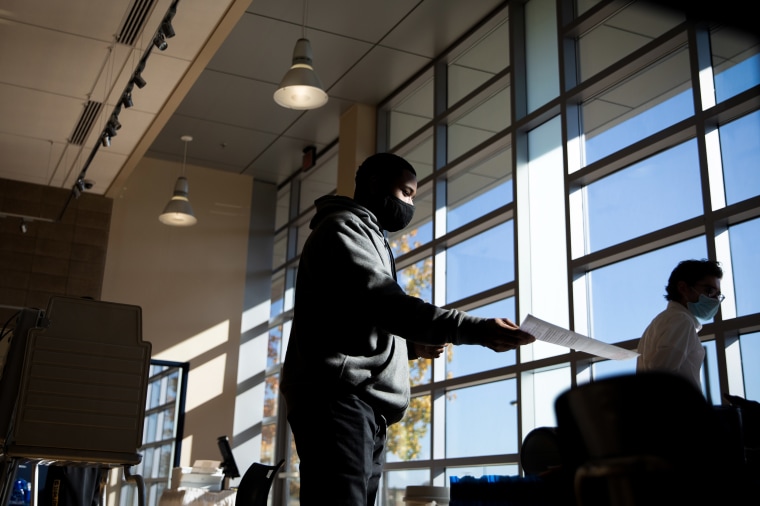One of the more noticeable polling shifts between the last presidential campaign and this one is among Black voters.
While they remain overwhelmingly aligned with President Joe Biden, his level of support is lower than in 2020. And Donald Trump’s Black support is often clocking in at levels that would outpace those of all previous Republican nominees in the modern era.
The findings have produced understandable skepticism, fueled by red herring polls in past campaigns suggesting surprising levels of Black GOP support that failed to materialize on Election Day. Dating to the 1964 presidential race, no Republican presidential candidate has exceeded 12% Black support in exit polls, with most failing to reach double digits.
But if you average the results of every high-quality independent poll released since April 1, here’s how Black voters are breaking — and how they were breaking over the same period in 2020:
It’s important to note that in most individual polls, the sample sizes of Black voters are generally low, given that they typically make up just over 10% of the electorate. That translates to a considerable margin of error in any given poll. Nonetheless, the averages, which fold in subsample results from multiple polls, do suggest a change from four years ago.
And that change appears to be generational. Breakdowns of Black voters by age are available from several recent polls; each shows a striking gap between younger and older Black voters:
Again, these reflect relatively small sample sizes, although the NBC News and CNN numbers are from “merged data” — datasets that combine the Black voter subsamples from the two national polls that each organization has sponsored this year, doubling the sample of Black voters. The age splits here are consistent and striking.
In addition, a Washington Post/Ipsos poll released this week (but conducted a month ago) looked exclusively at Black voters, with a pool of over 1,000 and a much smaller margin of error. Unfortunately, the poll didn’t directly measure the Biden/Trump race. But respondents were asked to rate their likelihood of supporting each of five potential candidates: 74% said Biden, 14% Trump, 20% Robert F. Kennedy Jr., 14% Jill Stein and 9% Cornel West.
Those numbers add up to well over 100% because many respondents picked multiple candidates, making it hard to place the findings in context with other polls. But even here, the age divide is glaring:
What’s clear and consistent across polls is that younger Black voters are more disillusioned with Biden and more open to Trump and third-party alternatives, while older Black voters are far more supportive of Biden and resistant to other options. If Trump can actually translate that into a historically high level of Black support and deny Biden the kind of advantage Democrats have long enjoyed, it could win him the election.
But that’s a huge “if.” The same polls also show that Biden-wary younger Black voters are far less likely to turn out in November than their older counterparts. In our NBC News poll, only 43% of Black respondents under 50 rated their interest level in the election as “9” or “10” on a 1-10 scale; among those over 50, 77% did.
And if it’s mainly the pro-Biden side of this generational divide that shows up in November, we could end up looking back at the current polling as just another red herring.

